‘Monstrous fancies, misshapen dreams’: My ambivalence with ‘Dorian Gray’
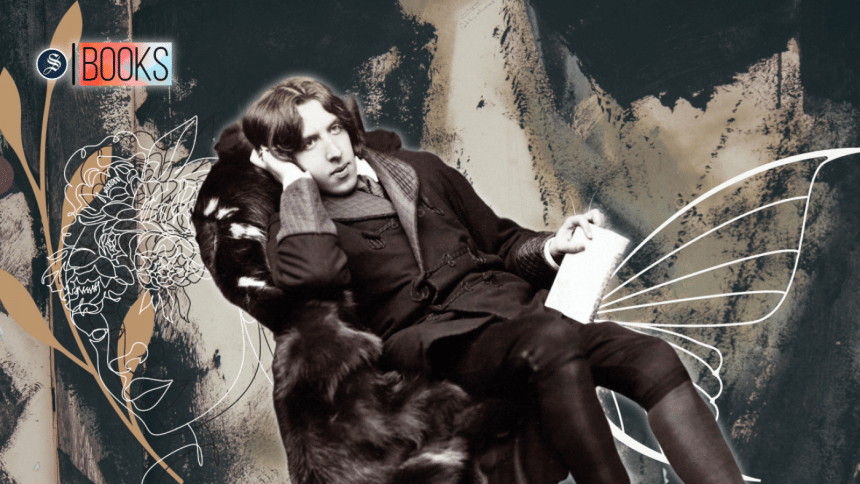
This disclaimer should come first, I didn't particularly like The Picture of Dorian Gray. I could say I didn't know what to feel about it in some specific parts. But I will not. I don't like to be vague about anything. I have to know exactly why. And so, this is my way of figuring out the why.
When a novel is written by a writer as well-known as Oscar Wilde, there will be endless discussions on it. The Picture of Dorian Gray was written more than a hundred years ago, so there's that much to it. So why pile on it with even more of the same? So, I won't say how human nature hasn't really diverted much and how great writers are great foreseers. That is already out there as an obvious truth, or at least I should hope so.
One more note prior to this—the book first came out in July 1890. But even for that period, in the novel, the various commentaries about women are sexist to the point that it is almost laughable. Oscar Wilde accepted a position as editor of The Woman's World magazine in 1887, he had strong opposition to gendered writing and once proclaimed in a letter, "artists have sex but art has none." So, I am giving him the benefit of doubt that he stands outside of the extreme sexist views held by men of that period—some of whom freely roam in this book preaching art, beauty and how women are a "decorative sex."
I've always been fascinated with the idea of creation, which probably stemmed in infancy from the idea of God and various scriptures' descriptions of how he created the universe. In the novel, everything starts with a creation, a painting. And soon enough, words come pouring in, mainly from Lord Henry but not exclusively so, about why we create anything, what the creation implicates, and eventually it boils down to the surface of what it means to be alive and how one should feel it, the aliveness.
It should be noted that all the people in this story occupy themselves with the great aristocratic art of doing nothing. Thus, when talking about art, literature and about life itself, all is distilled through and distorted by that lens.
This I already find amusing, because people who create art and people who consume it, more often than not, belong to vastly different groups. And here, I use the word "consume" very deliberately. The modern-day art auction scenes come to mind, where, as author and actor Fran Lebowitz has put it, when a Van Gogh painting emerges there's pin-drop silence, and applause when the bid is over and it is sold.
The book's obsession with the idea of beauty, youth, and the desperate urge to keep both intact as long as possible gets to a point where I honestly saw no difference between that and the reality stars of our TV channels with botoxed faces having a hard time laughing. The players of the story inflate the idea of creativity with it and they take the search for beauty in a very literal sense.
Here's the thing, much of the story is just all ideas. Mostly about how to live a life, which quite early on in the story is defined as "Nothing can cure the soul but the senses." It also gets established that the search for beauty is the real secret of life. And to attain that, you cater to your whims religiously; hedonism becomes the only way of being.
In accordance with that comes the point because you are the gatekeeper and custodian of art and culture—you deserve pretty things. Your pain matters more because surely ordinary general human beings can't feel the way you do. So, you value your sadness more, and the collateral in your quest to find beauty is nothing to be concerned about. One can see that as tax to your custodianship. You are after all a higher ideal of a human being.
Dorrian at one point says, "To have ruined one's self over poetry is an honor", which I must say is the one line I found in the book to most annoy me. Because I recognise that. It is in our pop culture to romanticise pain and see self-destruction as a must for the path to creativity. But my point is, mediocre people running around with a tortured artist look is just that, a look, nothing more. As Dorian Gray, Lord Henry dresses in appropriate clothing for dinner invitations where they read Omar Khayyam on the table and lament about seeing things from a proper artistic point of view. It reminds me of gatherings where I found even the deepest poetry sounding superficial in the glow of intellectual narcissism.
The second part of this, after doing all that, the supposed things one does to live a life of beauty, in pursuit of art and such things, is that the void that can't be filled. So, what comes next can be placed word-for-word for our life lived through social media platforms. Where, as Lord Henry mentions, people know the price of everything and the value of nothing. Where there is a want to escape from ourselves. But we obsess over images nonetheless that need to be validated by our peers. Where if one doesn't talk about a thing, it has never happened. Where, exactly like the novel says but in a literal sense almost, we've become the spectator of our own life. And finally, a numbness settles in, where neither real sorrow nor real joy can be felt, only the "passion of the spectator" remains.
A side note here, there's no other way but to fall for the signature Oscar Wilde aphorisms while reading it. Some of these are so catchy, they would make great quotes on Twitter and slogans for self-motivation. When the question comes, "What are you?" And Wilde writes, "To define is to limit", I immediately laughed imagining it appropriated by some well-being coach on Instagram.
I am not placing myself above it all either. I know these things because I've been these things at some point or the other. And I did love parts of the book. "How tragic it would be if you were wasted", made me smile in a melancholic way. I know moments when "unnecessary things are our only necessities". And I've not been hesitant to give "rebellion its fascination" and "disobedience its charm."
I didn't particularly like this book, obviously not because it had all these elements in it—a novel is no place for only likeable characters, but because there was no resolution to it. So, when I was reading the book, I could see all the flocks of people around me, generations trying to impose culture and creativity on themselves as a way of being. And in the process, I see parts of myself with the good-resolutions-made-too-late syndrome. I see this moment in history, of fancying a thousand things and lionising ourselves for it along the way. So, though I wouldn't put this book on my favourite shelf, it is strong enough to evoke a full-life evaluation. I hope I won't romanticise our various "monstrous fancies and misshapen dreams" too much for too long. And see things for what they are, beyond the cages of piled-up ideas and the need to define everything accordingly. I hope I won't collude creativity with the most superficial idea of beauty. And instead, I hope there's this, the chance to gape at the mystery of life without giving in to hubris.
Sumaya Mashrufa is a human being who tries to be a human being. On a more formal note, she is a translator who wants to be a good typist, transcribing the stories of people who live in her head.

 For all latest news, follow The Daily Star's Google News channel.
For all latest news, follow The Daily Star's Google News channel. 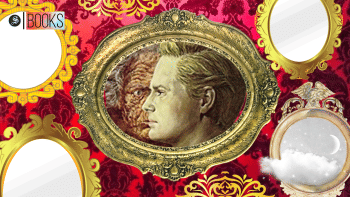
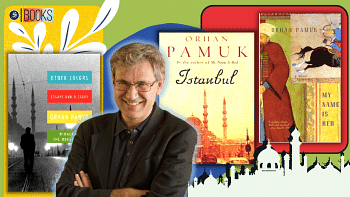
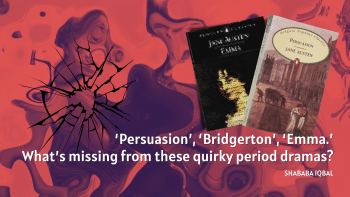


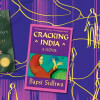


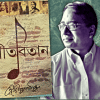
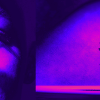


Comments